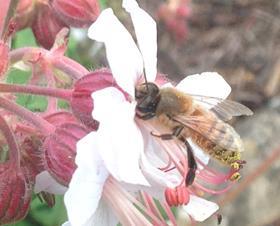
The UK government’s decision to partially lift the ban on neonicotinoids, pesticides believed by EU scientists to be hazardous to bees and other pollinators, has come under fire following the release of figures showing an increase in oilseed rape yields.
Campaigners suggested the National Farmers Union (NFU) had exaggerated the losses brought about by the ban after the independent Agriculture and Horticulture Development Board published its figures.
The NFU had challenged the ban, arguing that the restrictions to neonicotinoids were directly responsible for “heavy losses”.
Matt Shardlow, chief executive of insect charity Buglife, told the Independent newspaper: “This is further evidence that neonicotinoids are not essential to maintaining crop yields.”
Question marks also linger over the government’s silencing of its own pesticide advisers, the Expert Committee on Pesticides (ECP), which refused to back the NFU’s application to lift the ban, according to the Guardian.
Friends of the Earth’s Paul de Zylva, who also chairs the Bee Coalition, told the newspaper: “The threat to Britain’s bees from rising pesticide use is of huge public interest. But the secrecy and lack of information surrounding this crucial issue is astonishing. If the government and farmers put as much effort into reversing bee decline as they do playing politics over pesticides and bee health we might have less of a bee problem.”



